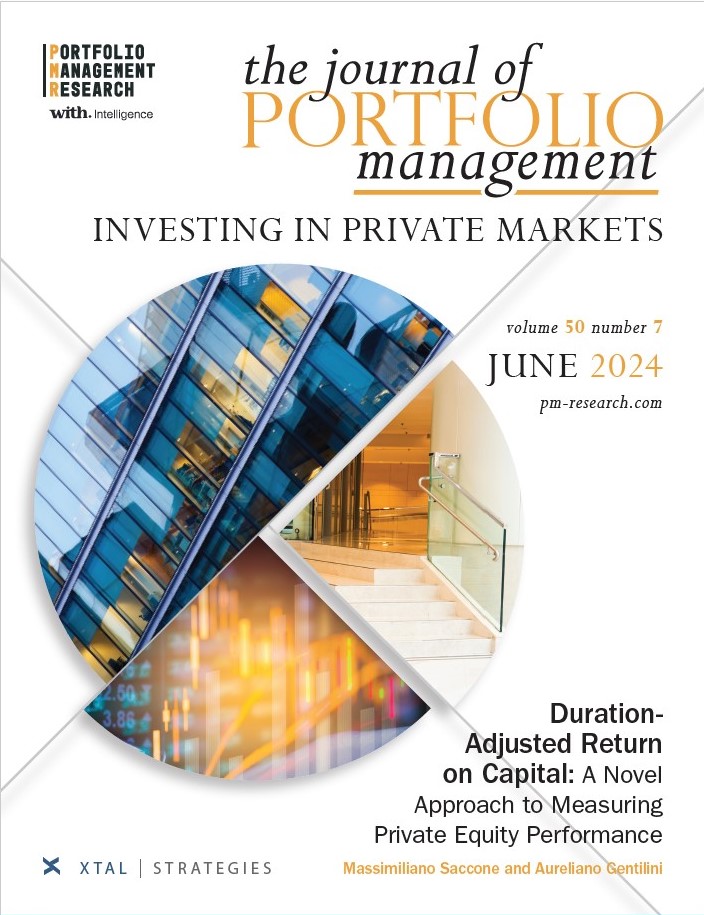This article details the construction and logic of a novel approach that uses Macaulay duration to create a time-weighted measure of private equity (PE) performance. The objective of this duration-adjusted return on capital metric is to compare the overall return streams of varying private investment outcomes using a single annualized rate of return.
Currently, no single, unambiguous standard captures the actual growth in wealth generated by a PE investment over time. Existing metrics neither enable performance comparisons to other asset classes nor properly measure and represent, through the standard logic of compounding, the underlying portfolio assets.
Therefore, the objective of the authors is to construct a clear, unbiased metric for PE investments that (as for all asset classes) has the simple but robust characteristic of practical usability in a multi-asset, multi-period capital market framework. To this end, they use capital market constraints and algorithms applied in valuing fixed income securities to properly evaluate the impact of contributions, distributions, and interim net asset values in private investing.
The Macaulay duration (the “weighted average time” of a financial transaction) applied to PE fund contributions, distributions, and the resulting net financial transaction is the pivotal tool in this exercise. As presented and tested, the outcome is a modular rate of return that explains the unique time-dependent features of PE investing.

Please submit the information below to request access to the article.
By submitting this form, you are providing us with your personal information. We take great care to look after your personal data safely and securely. You can read full details in our Privacy Policy or choose to unsubscribe.